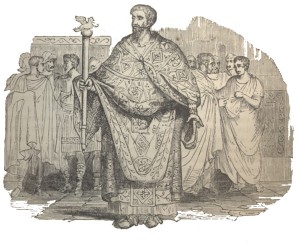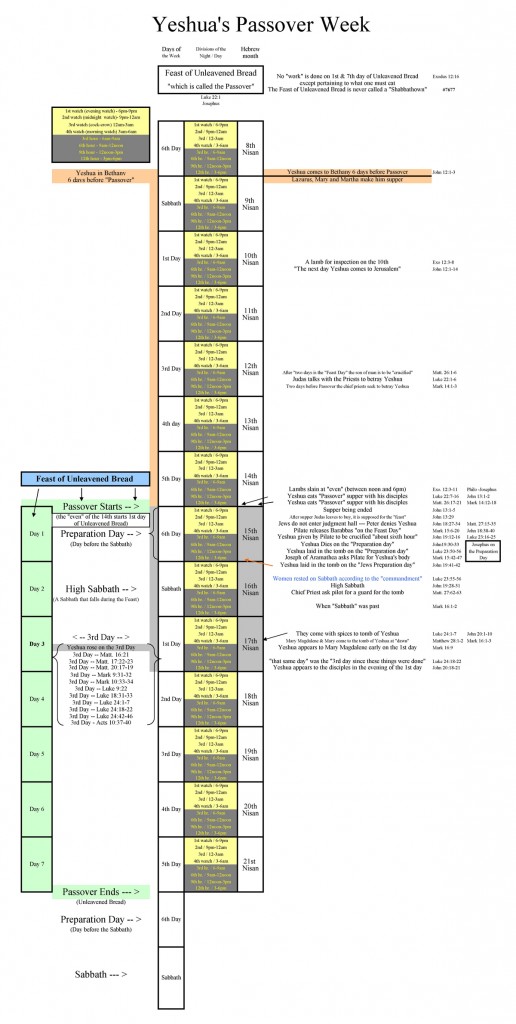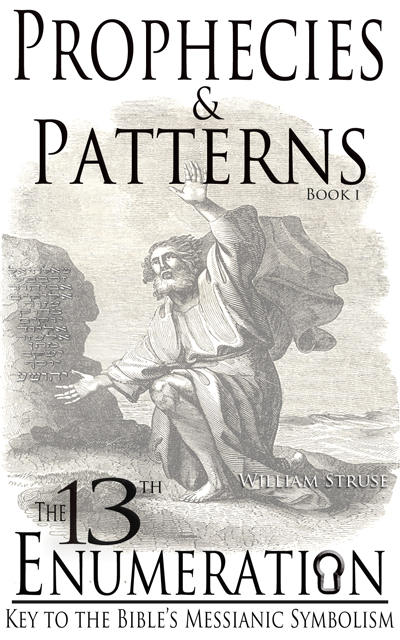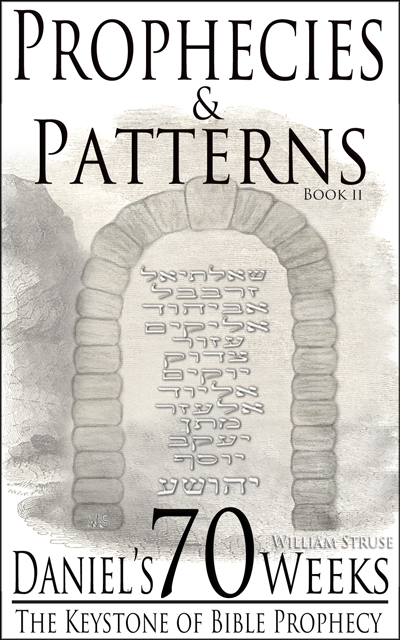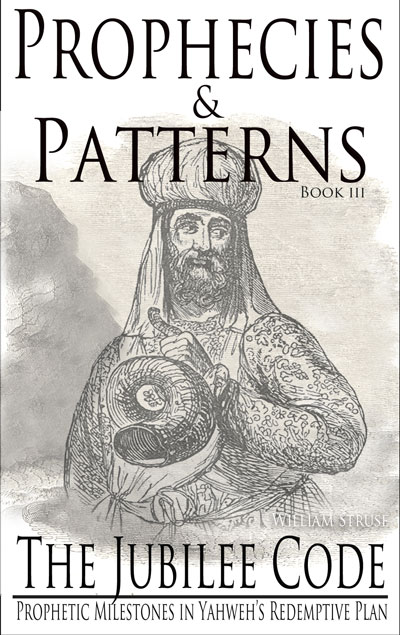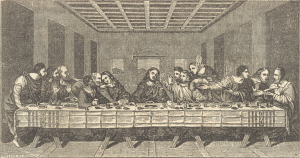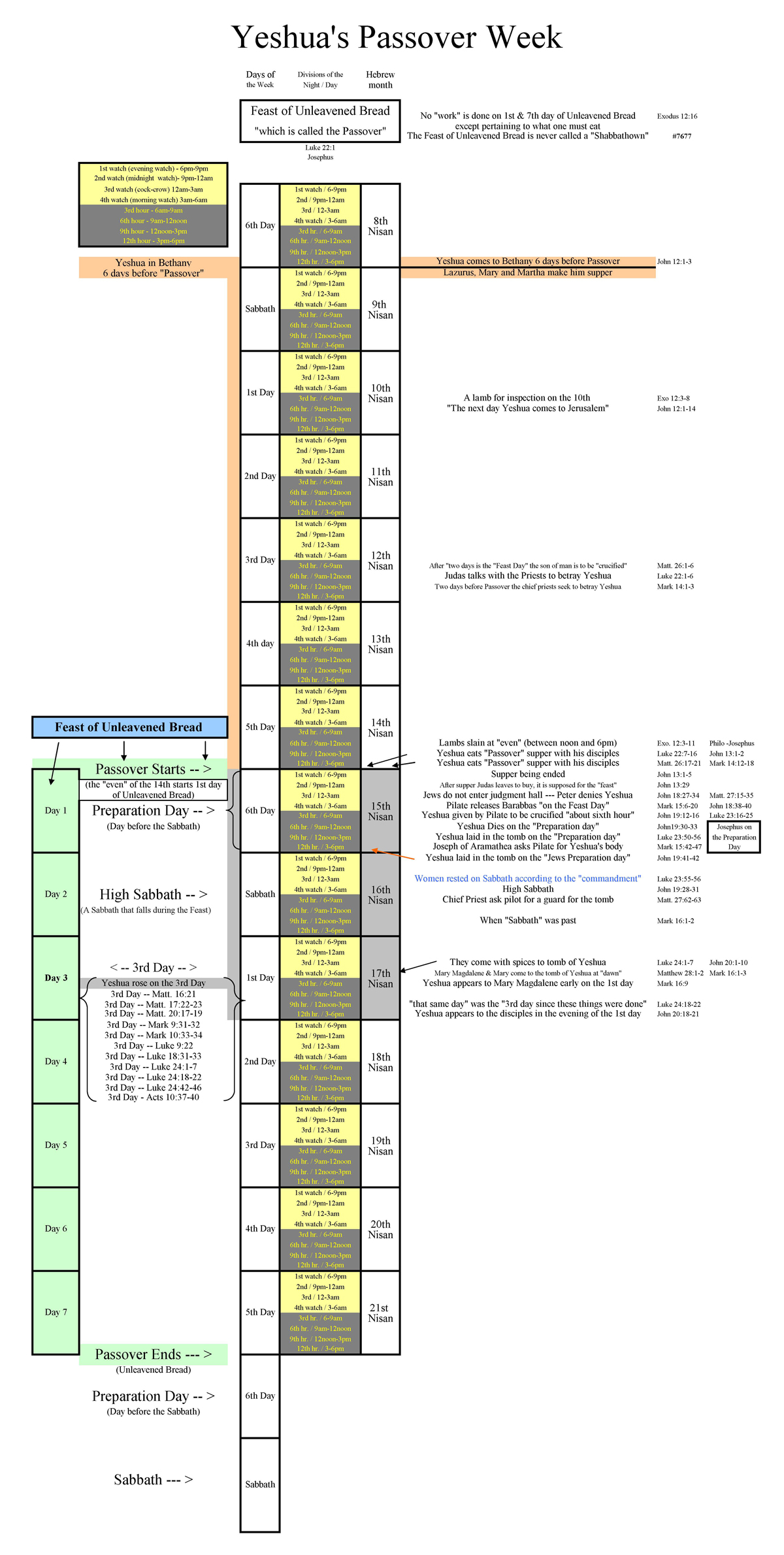Author’s Note: My recent article The 14th Sacrifice looked at the gospel accounts pertaining to Yeshua’s Passover supper. That article concluded that Yeshua was not crucified on the 14th of Nisan but instead the most plain reading of the New Testament record shows he was crucified on the feast day proper. (i.e. 15th Nisan, the 1st day of the Feast of Unleavened Bread) My next few articles will look at Yeshua’s Passover week chronology in light of some of the objections which are often raised by those who believe Yeshua was crucified on the 14th of Nisan.
In my previous article “The Feast Day”: Judas’ Betrayal we looked at the reason the disciples might have assumed Judas went to buy provisions for the “feast” day. In this article we will look at a different aspect of the Passover week chronology. After the Passover supper Yeshua and his disciples go into the garden to pray and then Judas comes with a “multitude” to arrest him. Yeshua is taken to the high priest’s house where he is questioned and subsequently taken to Pilate’s judgment hall where he is questioned again. As John 18:28 explains the Jewish leaders refuse to enter the hall because they fear being defiled and thus preventing them from eating the “Passover”.
John 18:28 28 Then led they Jesus from Caiaphas unto the hall of judgment: and it was early; and they themselves went not into the judgment hall, lest they should be defiled; but that they might eat the Passover.
Here again we have a statement used by some to reject Yeshua’s crucifixion on the “feast” day (i.e. the 15th of Nisan). Obviously if the “Passover” of John 18:28 is referring to the Passover supper then the day in question was clearly the 14th of Nisan.
First we need to determine if this reference to the “Passover” is used in the specific sense regarding the Passover supper or a more general sense regarding the Feast of Unleavened Bread. (See my article The 14th Sacrifice for examples of the specific and general use of the term “Passover”.) The answer to this question interestingly is found in the Old Testament. (Lev. 7; 11; 15 & Num. 19) In Leviticus and Numbers it states that if one is defiled by various means they are unclean – until – “even”. This reference of John 18:28 to eating the “Passover” then could not have been in reference to the Passover supper proper because the Jewish leader’s defilement would only have lasted until “even” and they would have been free to eat the Passover supper. This proves their concern must have been in regards to the events during the daylight hours of the 15th of Nisan and the “Passover” feast in general.
At the Feast Day
Further confirmation of the above is found in Matthew 27, Mark 15, Luke 23, Johh18. In these passages it states that traditionally Pilate would release one prisoner every year “at the feast”. Again taken at face value these verses show that Yeshua was tried on the feast day and that Pilate tried to release him “at the feast”. Remember the feast of “Passover”/Unleavened Bread did not begin until the 15th of Nisan.
Matthew 27:15-17 15 Now at that feast the governor was wont to release unto the people a prisoner, whom they would. 16 And they had then a notable prisoner, called Barabbas. 17 Therefore when they were gathered together, Pilate said unto them, Whom will ye that I release unto you? Barabbas, or Jesus which is called Christ?
Mark 15:6 6 Now at that feast he released unto them one prisoner, whomsoever they desired.
Luke 23:16-17 16 I will therefore chastise him, and release him. 17 (For of necessity he must release one unto them at the feast.)
John 18:39-40 39 But ye have a custom, that I should release unto you one at the passover: will ye therefore that I release unto you the King of the Jews? 40 Then cried they all again, saying, Not this man, but Barabbas. Now Barabbas was a robber.
Authors Note: This chart shows the chronology described above. For those looking to search this out for yourself you will find Scriptural references provided for each event. I know this is a little different format than most are use to but it helped me organize the events in a way which allows me to take the New Testament events at face value in their most natural and plain reading.
Click on the Image to enlarge:
For more on Yeshua’s Passover Week chronology please see the following articles:
* The 14th Sacrifice
* “The Feast Day”: Judas’ Betrayal
* Defiled on the “Passover”
* The “Preparation” Day
* The “3rd Day”

